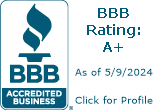Michigan Sales Tax Tips

One of our Agile team members sat in on the Michigan Department of Treasury’s sales and use tax webinar to provide this short summary for your reference. Here are some useful Michigan sales tax tips we picked up during the webinar!
Use Michigan Treasury Online (MTO)
Generally, companies will want to use Michigan Treasury Online (or MTO for short) to register, file, and pay Michigan sales and use taxes. While the state allows taxpayers to mail in their paper forms once registered, the Michigan Dept. of Revenue highly recommends using MTO for a few distinct advantages.
Arguably, the best part of MTO is that it helps prevent you from making unnecessary errors. The state creates new, updated forms for tax returns almost every year, so knowing which form corresponds with the current year can be confusing. Luckily, MTO will automatically use the correct paperwork, and it will double check for math errors or lines that were accidentally left blank.
Another benefit of using MTO is that it facilitates faster payment turnarounds. Tax payments made online before 8 p.m. Eastern Time are posted by the next business day. If you’re mailing a check, transit time is less certain, but if you run into a tight spot, you can get the post office to postmark your check. Furthermore, MTO also allows you to schedule payments ahead of time, so you can complete your filing well before the 20th of the month and check it off your to-do list. Payments on MTO can be made at anytime and in installments.
Some specific businesses are required by the state of Michigan to file through MTO. The types of companies included in this requirement are fuel and vehicle dealers, 4% and 6% filers (for home heating), marijuana sellers, and businesses with more than 250 employees. The state will also assign the status of "accelerated filers" to certain taxpayers, and they too are required to use MTO to file.
Know Your Responsibilities and Filing Frequency
Knowing your responsibilities is one of the less interesting Michigan sales tax tips, but you should still understand what your obligations are in the state’s eyes. A taxpayer's responsibilities are to maintain your treasury registration information, keep records (like invoices, exemption certificates, and records of payments), and respond to any treasury letters. Along with that, it is taxpayers' responsibility to file a tax return and payment monthly, quarterly, or annually as assigned by the state.
Note: even if your payment will be $0, you still need to file a tax return stating you’re responsible for $0 in payments. Should you be audited, not filing can result in a much longer lookback window than if you are filing.
Michigan assigns companies a specific filing frequency based off their tax liabilities. The webinar hosts pointed out that, as of October 2021, the current numbers on Michigan’s website are incorrect for determining filing frequency. Businesses that owe more than $1000 a month are meant to file monthly; businesses that owe between $63-999 a month file quarterly; and businesses that file less than $62 a month are required to file annually. All seasonal filers and fuel retailers or suppliers should be filing monthly, but seasonal filers may apply to only file during the months in which they’re open.
Most businesses will file monthly or quarterly using Form 5080, while others will file annually with Form 5081. However, even if a company is told by the state to file monthly or quarterly, they must still submit an annual reconciliation. MTO streamlines this process, if you’ve already been filing digitally, by pulling numbers from previous returns.
Michigan provides significant sales tax exemptions to manufacturers involved in industrial processing, and it's crucial to be aware of the exemptions you may be eligible for. Additionally, individuals who are uncertain about whether they are classified as a retailer or a contractor for Michigan real estate should ensure they understand their payment obligations. It's important to know what you are responsible for paying.
The Best of our MI Sales Tax Tips: Pay Early
Make the most of your dollars by paying your taxes before the 12th of the month. Doing so earns taxpayers an early payer discount and saves them a little bit of money. Those who consistently pay by the 20th, called Timely Payers, also receive a tax discount, but it’s smaller than the early payer discount. The maximum discount one can receive is $20,000.
Penalty Waivers
Lastly, you may request a penalty waiver (in writing only) should you miss a return or payment. Waivers are generally granted for death, serious illness, fire, theft, criminal acts against the taxpayer, or for misapplications of payment by the Michigan treasury. You’re also able to request a one-time penalty waiver for any reason at any time. This one-time waiver is one of the Michigan sales tax tips that we’ve found often works in other states too.
We hope this advice was helpful, but should you need sales & use tax assistance in Michigan or any other state, feel free to contact one of our experienced sales and use tax experts for a free consultation.












